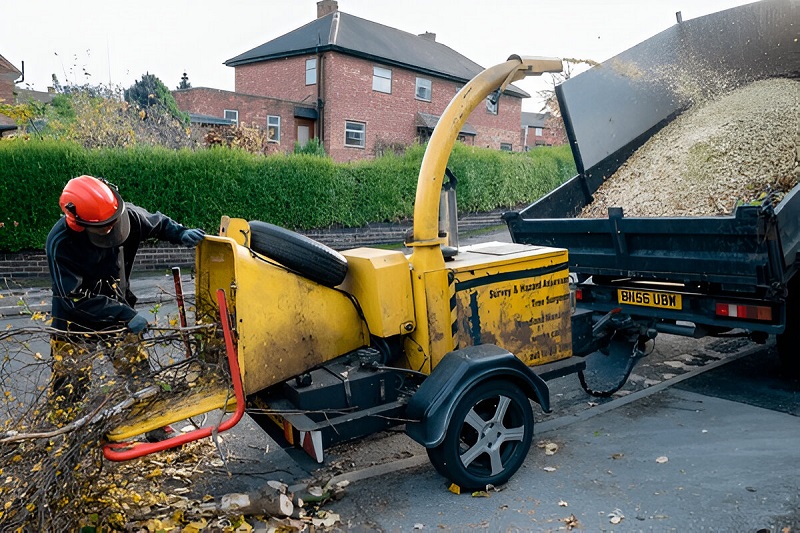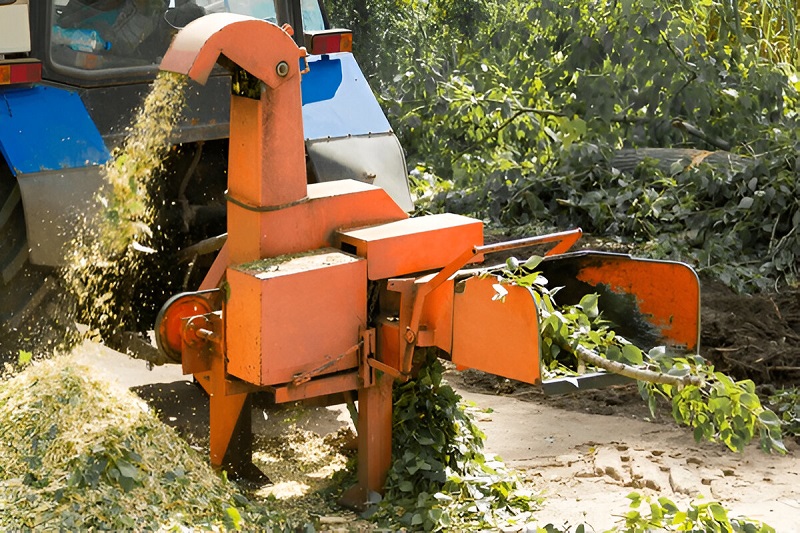Let’s face it. Among a gardener’s vast collection of tools, a wood chipper is one of the most daunting, yet invaluable. In the grandeur of your sprawling garden, the uniqueness of your landscaped paradise, have you ever paused to think about how to manage the branch and leaf litter? Have you pondered over the best way to recycle and return those nutrients to your garden’s ecosphere? And how do you choose the perfect wood chipper for your unique needs?
To glean a gardener’s heart, one must tread the messy path of branches and fallen leaves, the unsung heroes that breathe life into a garden. This blog will unveil the mysteries behind wood chippers and help you find the perfect one for your gardening needs.
Wood chippers can save time, reduce effort, and bring that much-needed tidiness to your green oasis. But before we plunge into this leafy world, remember – like every rose has its thorn, every chipper has its chips and bits that demand understanding. From understanding the types of wood chippers to their relative pros and cons, you’re about to embark on a journey of enlightening fruition.
Table of Contents
Why Invest In A Wood Chipper?
When nature has woven its pattern across seasons, a garden often becomes a canvas of fallen leaves, branches, and shrubbery. This clutters the landscape and, truthfully, compromises your garden’s spectacle. Enter the wood chipper, a marvel of mechanics that can help manage your green waste efficiently.
Understanding how to utilize this organic waste effectively is crucial to maintaining the health and vibrancy of your garden. Wood chippers transform your garden detritus into nutrient-rich mulch, nourishing the ecosystem, and keeping your garden lush.
From an economic standpoint, wood chippers also reduce garden waste disposal costs while contributing significantly to the reduction of carbon footprints. With a wood chipper, you’re not just keeping your garden neat, but contributing to a more significant initiative – a healthier planet.

Different Types Of Wood Chippers
From shredders to chippers and chipper shredders, the market overflows with options. Choosing the right one can be overwhelming, but fret not! This guide is here to help you navigate the maze.
Shredders, popularly known as leaf mulchers, are cost-efficient and ideal for light garden detritus. Perfectly suited to tackle your fall leaf accumulation, they’re a great ally in a small sized garden.
Chippers are the workhorses built to handle heavier work, capable of managing sizable branches with ease. If your garden demands serious power, chippers are a dynamic choice.
Chipper shredders, on the other hand, offer the best of both worlds. They handle both lightweight leaves and more substantial woodwork, making them a versatile and cost-effective option for medium- to large-sized gardens.
Key Features To Consider When Buying A Wood Chipper
Now that we’ve covered the basics, let’s delve into the essential features that will aid you in making an informed choice.
First, the power source. Wood chippers are powered either electrically or by gas. Electric chippers are low maintenance, quieter, and ideal for light-weight tasks in small gardens. Gas chipper, though louder and bulkier, handle heavy-duty work and are perfect for larger gardens.
The reduction ratio indicates the volume reduction from branch to chip. A higher ratio denotes more compression and, consequently, less bagging.
Lastly, consider the capacity of the machine. This is dictated by the size of the hopper and directly impacts the size of the branches it can process.

The Pros And Cons Of Wood Chippers
Like any tool, wood chippers come with their set of advantages and limitations. Their ability to convert waste into mulch, saving costs and boosting garden health, competes with concerns surrounding noise, maintenance, and safety hazards. But equipping oneself with the right knowledge and safety practices can help leverage benefits while mitigating drawbacks.
Conclusion
The journey to finding the perfect wood chipper for your gardening needs is an expedition of understanding the nuances of your garden’s need, your commitment to sustainability and the economics of garden waste management. From recognizing the types of wood chippers to addressing the pros and cons, your informed choice will inevitably carve out a garden that’s not only beautiful but also healthy and eco-sensitive.
Remember, your choice of a wood chipper isn’t just about tidying up; it’s about the very life-cycle of your garden’s ecosystem. Here’s to thoughtful, informed gardening choices paving the way for greener spaces and a healthier planet!








